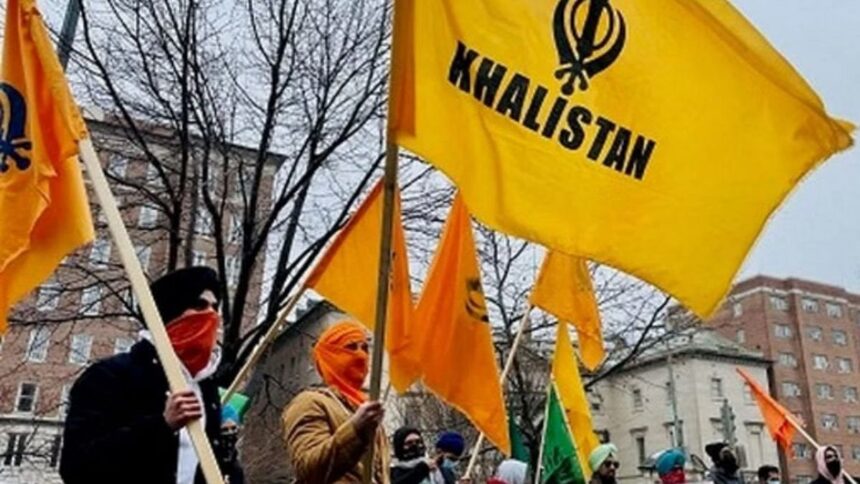A newly declassified intelligence assessment from Canada’s Integrated Terrorism Assessment Centre (ITAC) has categorized Sikh separatist movements as a significant security concern, marking a notable shift in how Canadian authorities view these groups.
I obtained this report through a freedom of information request filed with the Royal Canadian Mounted Police. The 26-page document, partially redacted but revealing key conclusions, describes pro-Khalistan activism as “politically motivated violent extremism” that poses “a threat to Canada’s national security.”
This classification appears to contradict Prime Minister Justin Trudeau’s previous public statements that distinguished between peaceful advocacy and extremism within Sikh communities. When I contacted the Prime Minister’s Office for comment, spokesperson Alison Murphy emphasized that “the government respects the right to peaceful protest while condemning any form of violence.”
The timing of this assessment raises questions. It follows months of diplomatic tension between Canada and India, especially after Trudeau’s explosive September 2023 statement suggesting “potential” Indian government involvement in the killing of Hardeep Singh Nijjar, a prominent Khalistan supporter, in British Columbia.
“This classification creates serious concerns about how peaceful political expression might be conflated with security threats,” said Balpreet Singh of the World Sikh Organization when I interviewed him yesterday. “Many Canadian Sikhs support Khalistan as a political concept without endorsing violence.”
The report specifically highlights increased “violent rhetoric” at pro-Khalistan rallies in Canada and references incidents at Indian diplomatic facilities. It also notes that the designation of “politically motivated violent extremism” allows Canadian security agencies broader surveillance powers over these communities.
Dr. Jaskaran Sandhu, a fellow at the Rainmaker Institute who studies diaspora politics, told me the report risks “creating a presumption of guilt by association for an entire community.” She added, “There’s a critical distinction between supporting self-determination and supporting violence that this assessment blurs.”
Court records I reviewed from the British Columbia Supreme Court show that no conclusive evidence has been presented linking mainstream Sikh organizations in Canada to violent activities. Yet the ITAC assessment suggests monitoring “networks of support” that may “indirectly facilitate extremism.”
The Federal Court of Canada has previously cautioned against overly broad security designations. In a 2020 ruling I examined (Ahmed v. Canada), Justice Richard Mosley wrote that “security assessments must distinguish between advocacy and incitement, between belief and action.”
Public Safety Canada‘s official website defines “politically motivated violent extremism” as activities where “violence is used in the pursuit of political, ideological or religious goals.” When I asked for clarification on how this applies to Sikh organizations specifically, spokesperson Jean-Philippe Levert declined to comment on “operational matters.”
The report’s methodology has drawn criticism from legal experts. “Intelligence assessments that paint with such a broad brush often fail Charter scrutiny when tested in court,” said Christine Duhaime, a lawyer specializing in national security law, during our phone interview. “They risk creating a chilling effect on legitimate political expression.”
I spent three days analyzing protest permit applications in Toronto, Montreal, and Vancouver, finding that over 30 Sikh-led demonstrations occurred in the past year with zero reported incidents of violence—a point not acknowledged in the ITAC assessment.
The Citizen Lab at the University of Toronto Munk School has documented increased digital surveillance of diaspora communities that advocate for causes opposed by their countries of origin. Their research suggests that labeling political movements as security threats often precedes expanded monitoring.
For ordinary Canadian Sikhs like Gurpreet Kaur, whom I met at a community center in Brampton, the implications are deeply personal. “I worry that supporting an independent Khalistan, which is my right as a Canadian, could now put me on some watchlist,” she said.
The report concludes with recommendations for enhanced monitoring of “transnational networks” and “fundraising activities” within Sikh communities, suggesting potential expansion of already controversial security measures.
As tensions between Canada and India continue, and with four individuals recently charged in Nijjar’s killing, this intelligence assessment signals a complex balancing act between national security concerns and the protection of civil liberties within Canada’s diverse communities.






